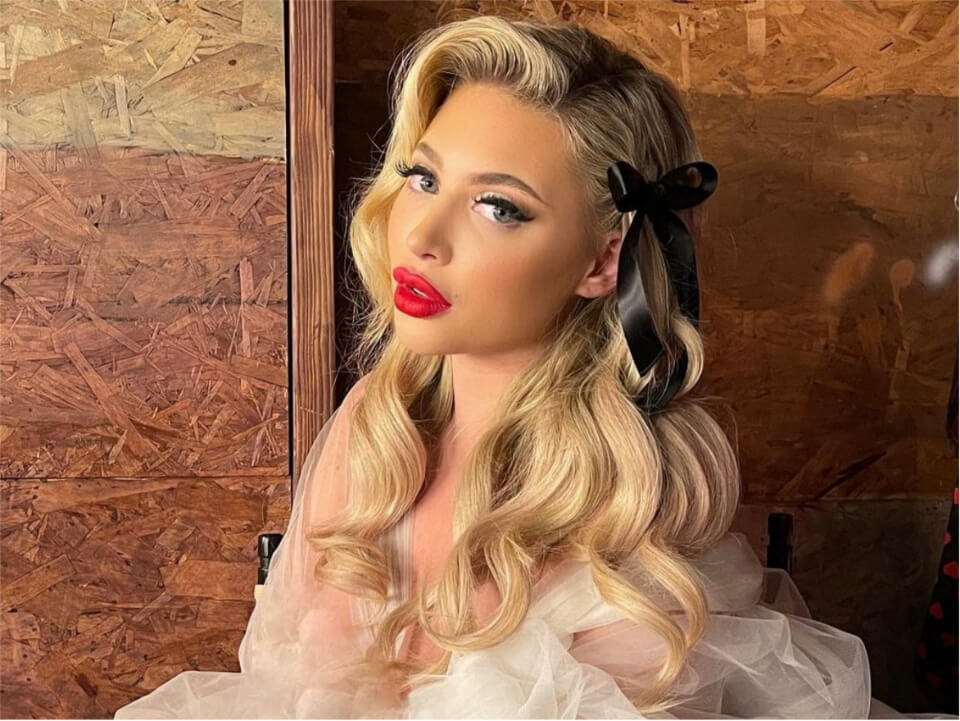Ava Louise Sex Tapes: The Untold Story Behind The Viral Phenomenon
Listen up, folks. We’re diving deep into a topic that's been making waves across the internet—Ava Louise sex tapes. Yeah, you heard me right. It's one of those stories that grabs your attention and doesn't let go. In today's digital age, where information spreads faster than wildfire, this story has become a hot topic of discussion. So, buckle up and get ready for an eye-opening journey into the world of Ava Louise and the controversy surrounding her.
Now, before we dive headfirst into the juicy details, let’s set the stage. Ava Louise isn’t just another name floating around the web. She’s a real person with a real story, and that’s what makes this entire narrative so compelling. The internet is filled with misinformation, so we’re here to give you the facts straight, no fluff. This isn’t just about a viral sensation; it’s about understanding the impact of such content on individuals and society as a whole.
And hey, don’t worry—we’re not here to judge. We’re here to inform, educate, and maybe even spark a conversation. So, whether you’re curious, concerned, or just plain intrigued, this article is for you. Let’s explore the ins and outs of Ava Louise’s story and see how it all went down.
Read also:Messy Eater Stain Treater The Ultimate Guide To Saving Your Clothes
Who Is Ava Louise? A Quick Bio
Before we get into the nitty-gritty of the tapes, let’s take a moment to understand who Ava Louise really is. Born and raised in a small town, Ava wasn’t always in the spotlight. She’s a regular gal who found herself thrust into the limelight due to circumstances beyond her control. Now, that’s something we can all relate to, right?
Here’s a quick rundown of her background:
Key Facts About Ava Louise
- Name: Ava Louise
- Age: Early 20s
- Occupation: Content Creator
- Location: United States
These details might seem basic, but they paint a picture of a young woman navigating the complexities of fame and privacy in the digital age. Ava’s journey is a testament to the power of the internet and how it can shape lives in unexpected ways.
Understanding the Ava Louise Sex Tapes Phenomenon
Alright, let’s talk about the elephant in the room—the tapes themselves. The Ava Louise sex tapes have become a sensation, sparking debates about privacy, consent, and the ethics of sharing personal content online. It’s not just about the content; it’s about the implications it has on society and the individuals involved.
Here’s the thing: in today’s world, where everything is just a click away, personal content can easily be shared without permission. This raises important questions about how we respect each other’s privacy in the digital space. Ava’s story is a prime example of how quickly things can spiral out of control.
How Did the Tapes Go Viral?
It’s a tale as old as time—or at least as old as the internet. Someone shares something privately, and before you know it, it’s everywhere. In Ava’s case, the tapes were initially shared within a closed circle but somehow made their way to the wider web. Platforms like Reddit, Twitter, and Instagram played a significant role in amplifying the content.
Read also:Unlocking The Secrets Of The Paxon North Loop Your Ultimate Guide
But here’s the kicker: the viral spread wasn’t just about the content itself. It was about the gossip, the speculation, and the sheer curiosity that drove people to share it far and wide. This phenomenon highlights the darker side of internet culture, where personal content can be weaponized for clicks and views.
The Impact on Ava Louise
Now, let’s shift our focus to the person at the center of this storm—Ava Louise. Imagine having your private moments exposed to the world. It’s not just embarrassing; it’s traumatic. The impact on Ava’s mental health and personal life has been significant, and it’s something we can’t ignore.
Studies show that individuals who experience this kind of exposure often face long-term psychological effects. Anxiety, depression, and social withdrawal are just a few of the challenges they might encounter. Ava’s story serves as a reminder of the importance of empathy and understanding in the digital age.
Support Systems for Victims
Thankfully, there are resources available for individuals in Ava’s situation. Organizations like the Cyber Civil Rights Initiative and RAINN offer support and guidance to those affected by non-consensual sharing of intimate images. It’s crucial for victims to know they’re not alone and that help is out there.
So, what can we do as a society? We can start by promoting digital literacy and encouraging people to think twice before sharing content that isn’t theirs to share. Education is key to preventing similar incidents in the future.
The Legal Side of Things
Let’s talk about the law for a moment. The distribution of Ava Louise sex tapes without her consent is illegal in many jurisdictions. Known as "revenge porn" or "non-consensual pornography," this practice violates privacy laws and can result in serious consequences for those involved.
Legislation around the world is evolving to address these issues. Countries like the United States, the United Kingdom, and Australia have implemented laws to protect individuals from the non-consensual sharing of intimate content. These laws are a step in the right direction, but enforcement remains a challenge.
What Can You Do If It Happens to You?
If you or someone you know finds themselves in a similar situation, here’s what you can do:
- Report the content to the platform where it’s being shared.
- Contact law enforcement to file a formal complaint.
- Seek legal advice to understand your rights and options.
- Reach out to support groups for emotional and psychological assistance.
Knowledge is power, and knowing your rights can make all the difference in such situations.
Social Media’s Role in the Spread
Social media platforms play a pivotal role in the spread of viral content. While they have policies against the sharing of non-consensual intimate images, enforcement can be inconsistent. Algorithms designed to amplify engaging content often prioritize clicks over ethics, leading to the rapid spread of sensitive material.
Platforms like TikTok, YouTube, and Instagram have faced criticism for not doing enough to prevent the sharing of such content. However, they’ve also taken steps to improve their policies and tools to combat the issue. It’s a balancing act between free expression and responsible content moderation.
What Are Platforms Doing About It?
To their credit, many platforms have introduced features to help users protect their content. For example, Instagram allows users to restrict who can view their stories, while TikTok has implemented AI tools to detect and remove harmful content. These measures are steps in the right direction, but there’s still work to be done.
As users, we also have a responsibility to report harmful content and support platforms that prioritize safety and privacy.
The Broader Implications
Ava Louise’s story isn’t just about her; it’s about the broader implications of living in a digital age. Privacy is becoming increasingly difficult to maintain, and the lines between public and private are blurring. This raises important questions about how we interact online and what we consider acceptable behavior.
Experts in digital ethics argue that we need to rethink our approach to content sharing. It’s not just about the law; it’s about creating a culture of respect and accountability online. Education, policy changes, and technological advancements all have a role to play in shaping a safer digital future.
How Can We Create a Safer Online Environment?
Here are a few ideas:
- Teach digital literacy in schools to help young people understand the consequences of their online actions.
- Encourage platforms to prioritize user safety in their algorithms and policies.
- Support legislation that protects individuals from non-consensual content sharing.
- Promote empathy and kindness in online interactions.
It’s a collective effort, and every action counts.
Conclusion: What Can We Learn From Ava Louise’s Story?
As we wrap up this article, let’s take a moment to reflect on what Ava Louise’s story teaches us. It’s a cautionary tale about the dangers of sharing personal content online and the importance of respecting others’ privacy. In a world where everything is just a click away, we need to be mindful of the impact our actions can have on others.
So, what can you do? Start by being a responsible digital citizen. Think twice before sharing content that isn’t yours to share. Support those who’ve been affected by similar incidents and advocate for policies that protect privacy and promote safety online.
And hey, don’t forget to share this article with your friends and family. The more people know, the better equipped we all are to navigate the digital landscape. Let’s work together to create a safer, more respectful online environment for everyone.
Table of Contents
Who Is Ava Louise? A Quick Bio
Understanding the Ava Louise Sex Tapes Phenomenon
What Can You Do If It Happens to You?
Social Media’s Role in the Spread
What Are Platforms Doing About It?
Article Recommendations


